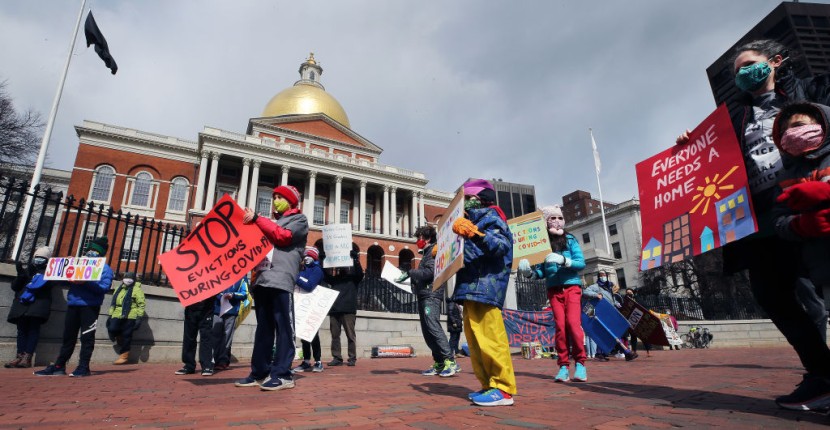
With less than a month until a pandemic-related eviction moratorium expires, the White House convened a virtual conference on Wednesday to hear officials warn that millions of renters, as well as the landlords who rely on them, are in terrible difficulties across the country.
The meeting comes one day after the Supreme Court decided that the Centers for Disease Control and Prevention (CDC) must have congressional permission to prolong the moratorium, in what was viewed as a partial victory for landlords. Housing officials, as well as legal and academic experts, discussed ideas on best practices for preventing evictions during the one-hour virtual conference, which was attended by leaders from more than 50 cities.
Court decided to end the eviction moratorium
Judge Dabney Friedrich's decision to withdraw the recently extended CDC eviction moratorium will not be upheld by the Supreme Court. Yesterday, the court issued a 5-4 decision, with Justice Samuel Alito, Justice Neil Gorsuch, Justice Clarence Thomas, and Justice Amy Coney Barrett voting no.
It was the final stage in what has been a long and winding journey for the CDC moratorium, which has been the subject of many lawsuits in recent months. Although the moratorium was overturned in May, Judge Friedrich agreed to postpone her decision while the Department of Justice filed an appeal, as per The Motley Fool via MSN.
However, some housing experts believe that the newest race is too late. Tens of billions of dollars have been set aside by Congress for emergency rental assistance.
Tens of billions of dollars have been set aside by Congress for emergency rental assistance. Most of that money hasn't made it to those who need it the most. Local governments have battled to keep programs going to get the money out quickly.
The White House is now racing to organize courts, states and localities, legal aid organizations, and housing groups to help keep families in their homes, as the White House's tool for renters is very limited at this time. The White House and the Treasury Department announced measures last week to expedite the disbursement of rental assistance and streamline the application process.
Nonetheless, the administration recognizes that an eviction crisis can only be prevented with the help of local governments and courts, and is asking for an "all-hands-on-deck" effort. Gene Sperling, who is in charge of implementing the $1.9 trillion American Rescue Plan, said at a White House meeting on Wednesday that the government is urging everyone to respond with speed and force because there is no alternative, The Seattle Times reported.
Read Also: Child Tax Credit: Why It May be Bigger Than Expected and How It May Affect Your 2022 Taxes
What's next?
To prevent evictions, the Biden administration said it will cooperate with state and municipal governments. The administration said it will urge state courts to adopt anti-eviction practices, make it easier for state and local governments to access federal assistance money and help families receive federal assistance to pay for rent, relocation, security deposits, and temporary hotel accommodations, in addition to speeding rental-assistance money to renters and landlords.
The American Rescue Plan, which was enacted in March, included a $21.5 billion rental assistance fund. This is in addition to the $25 billion given to states under the stimulus program passed in December. Renter households must fulfill three criteria to be recognized for help from those funds, as per CNET:
- The household income must not be more than 80% of the median income in the area where you live.
- At least one household member must be eligible for unemployment benefits or have faced financial difficulty as a result of the COVID-19 pandemic, either directly or indirectly.
- At least one member must be able to show that they are at risk of being homeless if they do not get support.
Priority will be given to the families that are the most financially vulnerable. As a result, the first families to get assistance should be those whose income does not exceed 50% of the local median income. Households with people who are now jobless and have been unemployed for 90 days or longer are also included.
Related Article: Court Says CDC's Eviction Moratorium To Continue; Several Advocates Call For Extension
@YouTube








